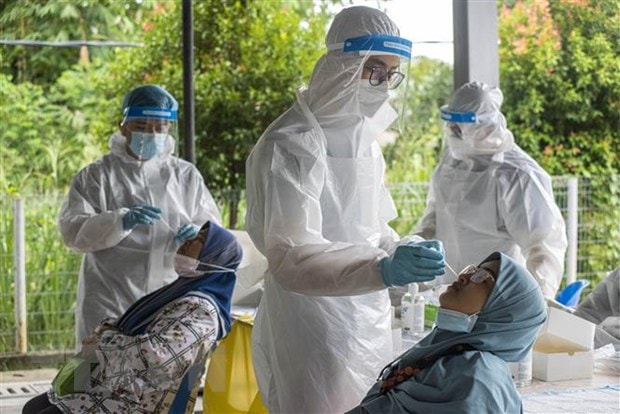Is Malaysia 'home' to some super-infectious SARS-CoV-2 variants?
Malaysia may have one or more local variants that increase the likelihood and speed of transmission as well as the continued increase in asymptomatic and sporadic cases.
 |
| Medical staff take Covid-19 test samples from people in Ampang, near Kuala Lumpur, Malaysia. Photo: THX/TTXVN |
Malaysia may be home to some local, super-infectious SARS-CoV-2 virus variants that are currently out of the sights of the country's health authorities.
While the Malaysian Ministry of Health is focusing on the worrisome imported SARS-CoV-2 virus variants (VoC), especially the dreaded B1617 double-mutant Indian variant, unidentified local virus strains could be driving the current wave of infections, according to virologists.
In a statement quoted by the Oriental Daily, Professor Dr. Sazaly Abu Bakar - Director of the Center for Tropical Infectious Diseases Research and Education at the University of Malaysia said that currently, VoC (of concern) is the double mutant from India, but it is likely that a new variant is driving the outbreak in Malaysia.
Super-spreading clusters in prisons and detention centers in Malaysia further demonstrate the virus's longer survival and greater transmissibility.
Based on the number of new Covid-19 cases, Professor Sazaly said that Malaysia may have one or more local variants, thereby increasing the possibility and speed of infection as well as the constant increase in the number of asymptomatic and sporadic cases.
In fact, the Center for Tropical Infectious Diseases Research and Education has identified two potential local strains of the virus, and this is just the tip of the iceberg.
According to Professor Sazaly, Malaysia is in a war where it does not know what the enemy looks like, and can only shoot in the dark because after 1 year there is still not enough data and research on local samples.
Professor Sazaly stressed that the only way for Malaysia to win is to create breakthroughs in treatment, but this cannot be achieved without putting the virus under the microscope.
Meanwhile, Malaysian health authorities have yet to release the results of genetic studies and many scientists agree that the data on the virus studied by the National Institute for Medical Research is very limited.

